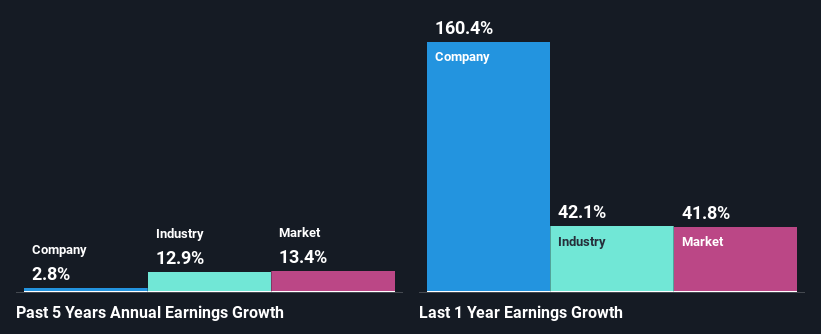Should Weakness in Coda Octopus Group, Inc.'s (NASDAQ:CODA) Stock Be Seen As A Sign That Market Will Correct The Share Price Given Decent Financials?
Coda Octopus Group (NASDAQ:CODA) has had a rough three months with its share price down 18%. However, stock prices are usually driven by a company’s financials over the long term, which in this case look pretty respectable. In this article, we decided to focus on Coda Octopus Group's ROE.
ROE or return on equity is a useful tool to assess how effectively a company can generate returns on the investment it received from its shareholders. In simpler terms, it measures the profitability of a company in relation to shareholder's equity.
Check out our latest analysis for Coda Octopus Group
How To Calculate Return On Equity?
The formula for ROE is:
Return on Equity = Net Profit (from continuing operations) ÷ Shareholders' Equity
So, based on the above formula, the ROE for Coda Octopus Group is:
15% = US$6.1m ÷ US$41m (Based on the trailing twelve months to July 2021).
The 'return' is the amount earned after tax over the last twelve months. That means that for every $1 worth of shareholders' equity, the company generated $0.15 in profit.
What Has ROE Got To Do With Earnings Growth?
So far, we've learned that ROE is a measure of a company's profitability. We now need to evaluate how much profit the company reinvests or "retains" for future growth which then gives us an idea about the growth potential of the company. Assuming all else is equal, companies that have both a higher return on equity and higher profit retention are usually the ones that have a higher growth rate when compared to companies that don't have the same features.
A Side By Side comparison of Coda Octopus Group's Earnings Growth And 15% ROE
To start with, Coda Octopus Group's ROE looks acceptable. And on comparing with the industry, we found that the the average industry ROE is similar at 14%. Despite the modest returns, Coda Octopus Group's five year net income growth was quite low, averaging at only 2.8%. So, there could be some other factors at play that could be impacting the company's growth. For instance, the company pays out a huge portion of its earnings as dividends, or is faced with competitive pressures.
We then compared Coda Octopus Group's net income growth with the industry and found that the company's growth figure is lower than the average industry growth rate of 13% in the same period, which is a bit concerning.
Earnings growth is a huge factor in stock valuation. The investor should try to establish if the expected growth or decline in earnings, whichever the case may be, is priced in. This then helps them determine if the stock is placed for a bright or bleak future. What is CODA worth today? The intrinsic value infographic in our free research report helps visualize whether CODA is currently mispriced by the market.
Is Coda Octopus Group Efficiently Re-investing Its Profits?
Coda Octopus Group doesn't pay any dividend, meaning that potentially all of its profits are being reinvested in the business. This doesn't explain the low earnings growth number that we discussed above. So there could be some other explanation in that regard. For instance, the company's business may be deteriorating.
Conclusion
On the whole, we do feel that Coda Octopus Group has some positive attributes. Although, we are disappointed to see a lack of growth in earnings even in spite of a high ROE and and a high reinvestment rate. We believe that there might be some outside factors that could be having a negative impact on the business. That being so, the latest analyst forecasts show that the company will continue to see an expansion in its earnings. Are these analysts expectations based on the broad expectations for the industry, or on the company's fundamentals? Click here to be taken to our analyst's forecasts page for the company.
Have feedback on this article? Concerned about the content? Get in touch with us directly. Alternatively, email editorial-team (at) simplywallst.com.
This article by Simply Wall St is general in nature. We provide commentary based on historical data and analyst forecasts only using an unbiased methodology and our articles are not intended to be financial advice. It does not constitute a recommendation to buy or sell any stock, and does not take account of your objectives, or your financial situation. We aim to bring you long-term focused analysis driven by fundamental data. Note that our analysis may not factor in the latest price-sensitive company announcements or qualitative material. Simply Wall St has no position in any stocks mentioned.

